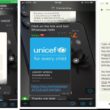About:
Verify Uganda is one of the first fact-checking organizations in Uganda, dedicated to promoting truth and accuracy in public discourse and media. We believe that access to accurate and reliable information is a fundamental right, and that fighting misinformation is essential for the health of our democracy and society.
According to a 2018 study by the Africa Check, a leading fact-checking organization in Africa, false information is a growing problem in the region, with 90% of survey respondents reporting that they had encountered false information in the previous week. Uganda has not been immune to this trend, with numerous instances of false and misinformation being spread through social media and other channels.
For example, during the COVID-19 pandemic, false information about the virus and its transmission was rampant, leading to confusion and fear among the public. In one instance, a widely shared video claimed that drinking alcohol could prevent the virus, leading to a surge in alcohol sales and consumption. Such misinformation can have serious consequences, including health risks and social unrest.
At Verify Uganda, we are committed to combating the spread of fake news and misinformation by verifying facts and sources of information. We are passionate about promoting critical thinking and media literacy in Uganda, and believe that by providing accurate and reliable information, we can help build a more informed and empowered society.
HOW WE VERIFY NEWS AND INFORMATION-
1. Stating the Claim
Begin by clearly stating the claim that is being fact-checked. Ensure the claim is quoted verbatim and provide information on where the claim originated. This could be a statement from a public figure, a widely shared social media post, or a news article.
Example: “Claim: ‘Vaccines cause autism,’ as stated in a viral Facebook post.”
2. Background Information and Context
Provide background information to give context to the claim. Explain why the claim is significant and relevant to the audience. Include any pertinent history or previous instances of similar claims.
Example: “The claim that vaccines cause autism has been a recurring topic in public health debates. It gained significant attention after a now-debunked study published in 1998 by Andrew Wakefield. Despite being retracted, the claim continues to influence public opinion and vaccine uptake.”
3. Verification Process
Detail the steps taken to verify the claim. This should include consulting credible sources, reviewing scientific literature, and contacting experts if necessary. Present the evidence that supports or refutes the claim.
Example: Step 1: Consulted studies from reputable sources such as the Centers for Disease Control and Prevention (CDC) and the World Health Organization (WHO).
Step 2: Reviewed peer-reviewed scientific literature on the relationship between vaccines and autism.
Step 3: Interviewed experts in epidemiology and pediatrics.
Evidence:
- The CDC states that vaccines are safe and do not cause autism.
- Multiple studies, including a comprehensive review by the Institute of Medicine, have found no link between vaccines and autism.
- Expert Dr. Jane Doe, a pediatric epidemiologist, confirms, “There is overwhelming scientific evidence debunking the myth that vaccines cause autism.”
4. Implication to the General Community
Discuss the potential impact of the claim on the community. Consider how believing the claim might affect public health, safety, and social behavior.
Example: “The perpetuation of the vaccine-autism myth can lead to lower vaccination rates, resulting in outbreaks of preventable diseases like measles and mumps. This poses a significant risk to public health, particularly to those who cannot be vaccinated due to medical reasons.”
5. Conclusion with a Clear Verdict
Summarize the findings and provide a clear verdict on the claim. Use straightforward language to state whether the claim is true, false, or misleading.
Example: Verdict: False.
The claim that vaccines cause autism is not supported by scientific evidence. Comprehensive studies and expert opinions confirm that vaccines do not cause autism and are crucial for preventing infectious diseases.
Example Fact-Check Article:
Claim: “Vaccines cause autism,” as stated in a viral Facebook post.
Background Information and Context:
The claim that vaccines cause autism has been a recurring topic in public health debates. It gained significant attention after a now-debunked study published in 1998 by Andrew Wakefield. Despite being retracted, the claim continues to influence public opinion and vaccine uptake.
Verification Process:
Step 1: Consulted studies from reputable sources such as the Centers for Disease Control and Prevention (CDC) and the World Health Organization (WHO).
Step 2: Reviewed peer-reviewed scientific literature on the relationship between vaccines and autism.
Step 3: Interviewed experts in epidemiology and pediatrics.
Evidence:
- The CDC states that vaccines are safe and do not cause autism.
- Multiple studies, including a comprehensive review by the Institute of Medicine, have found no link between vaccines and autism.
- Expert Dr. Jane Doe, a pediatric epidemiologist, confirms, “There is overwhelming scientific evidence debunking the myth that vaccines cause autism.”
Implication to the General Community:
The perpetuation of the vaccine-autism myth can lead to lower vaccination rates, resulting in outbreaks of preventable diseases like measles and mumps. This poses a significant risk to public health, particularly to those who cannot be vaccinated due to medical reasons.
Conclusion and Verdict:
Verdict: False.
The claim that vaccines cause autism is not supported by scientific evidence. Comprehensive studies and expert opinions confirm that vaccines do not cause autism and are crucial for preventing infectious diseases.




